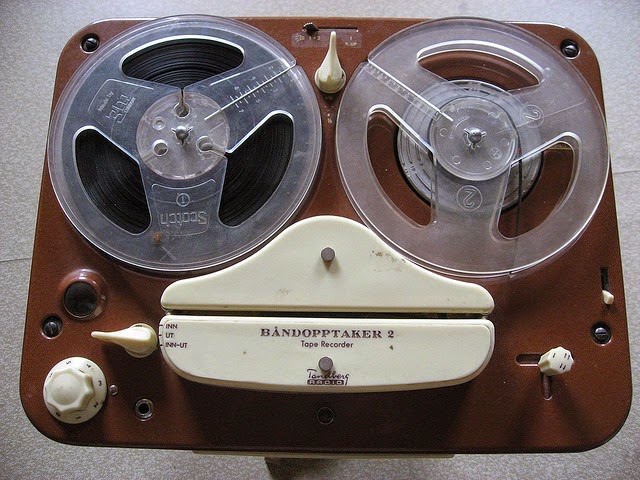[A version of this article first appeared as a post on my blog From the Front of the Choir]
How long’s a piece of string? There are so many options that I’m not going to specify any particular type or model.

However, here are some of the things you need to consider.
what to consider when choosing a recording device
- is it small and convenient and easy to use? – you won’t want to carry around a big, heavy object and have to look in the manual every time in order to use it. If it needs an external microphone that’s one more hassle and one more thing to forget to bring.
- can it use batteries or does it have to run off the mains? – batteries make the device more flexible (no need for power supply), but batteries can run out. Can it be recharged? Or make sure you have spares. Or don’t forget your mains cable!
- how much can you afford? – it’s no good having the latest whizz technology in mind if you can’t afford it. What is available within your budget?
- will the recordings be easy to find afterwards? – if you end up with hundreds of workshop recordings sitting on a shelf (or computer folder) unlabelled and unordered, there’s a good chance you will never get around to using them. Make sure you file them away sensibly so you can find what you want at a later date.
- is it easy to transfer the recordings to a computer? – transferring recordings to a computer means that you can edit them, store them easily and even email them to others or upload them to the web. I used to transfer analogue cassette tapes to my PC, but it takes as long as it does to play the whole cassette. Similarly when I had a digital minidisk, I still had to play it in real time whilst it transferred. With more modern devices you simply drag and drop files and it takes a matter of a few minutes to transfer even long recordings.
- what kind of quality do you need? – if you’re just recording the occasional workshop for your own purposes so you remember a song at a later date then you just need to make sure you can hear the audio clearly (i.e. cheap digital dictaphone or your even your mobile phone will do). Other than that you won’t have to fuss about bit rates and other audio jargon. However, if you want to record something to give (or sell) to others you might need better quality audio (i.e. a better quality digital dictaphone or a dedicated music recording device).
what I use
For years I used a Sony minidisc. The quality was excellent and several of my choirs released professional CDs of live concert recordings. This technology has been largely superceded and, as mentioned above, it takes ages to transfer audio files to a computer.
When I handed over my first choir WorldSong, they kindly clubbed together and bought me a Zoom H4. This is a fine digital recording device which can record up to four tracks simultaneously so would make a great sketch pad for you songwriters out there. I don’t exploit all its capabilities, but use it as a simple stereo work horse for recording concerts and workshops. It records to better than CD quality if you want it to.
Again, this has been superseded by more recent models, but the brand is still a good bet.
If you haven’t got as much money to spare (or don’t need CD quality) then there are plenty of digital dictaphones or voice recorders out there.
what do you use?
I’d love to hear about the technology you use for recording choir rehearsals and singing workshops. Do drop by and leave a comment. I’m sure we all have lots to learn!
To get more posts like this delivered straight to your inbox,
click to subscribe by email.
Chris Rowbury
website: chrisrowbury.com
blog: blog.chrisrowbury.com
Facebook: Facebook.com/ChrisRowbury
Twitter: Twitter.com/ChrisRowbury
Monthly Music Roundup: Tinyletter.com/ChrisRowbury
